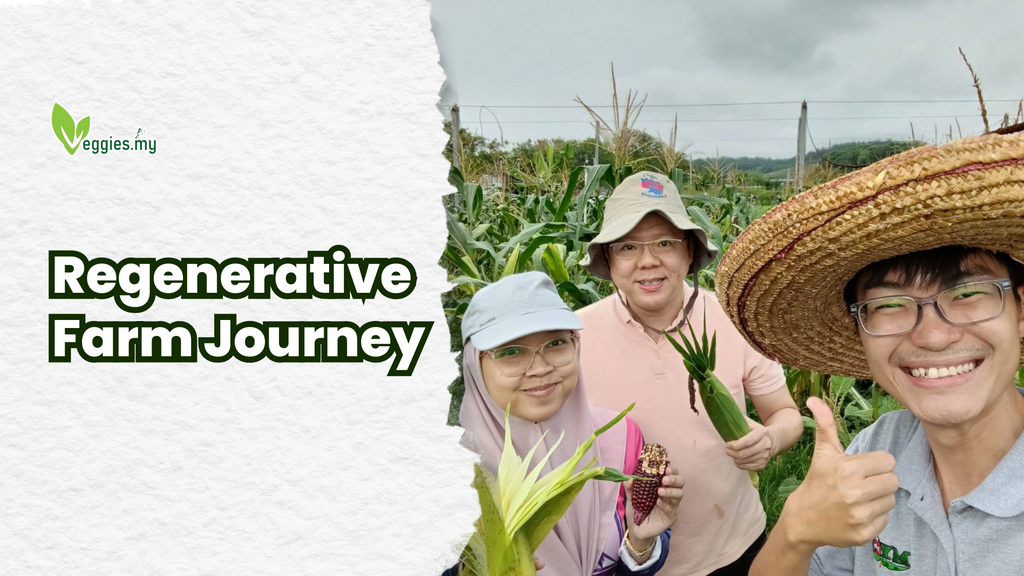Regenerative Farm Journey

Sustainable Farming in Action: The Three Sisters Method at UPM Serdang
Yesterday, we had the opportunity to visit Mr. Gideon’s farm at UPM Serdang, and it was an inspiring experience. His farm is a shining example of how regenerative farming can nurture the land, produce healthy crops, and protect the environment all without relying on chemical fertilizers or pesticides.
Mr. Gideon practices the Three Sisters planting method, a traditional agricultural technique that pairs corn, cucumber, and spinach together in the same plot. Each crop plays a role in supporting the others: the corn grows tall and provides a natural trellis for the cucumber vines to climb, the cucumber shades the soil to retain moisture, and the spinach enriches the soil with valuable nutrients. This natural partnership creates a self-sustaining ecosystem that thrives without synthetic inputs.

During our visit, Mr. Gideon showed us the three stages of planting on his farm. From the early seedlings in the seedbed to maturing crops in the field, each stage is carefully managed to ensure healthy growth while keeping the soil alive and fertile. What stood out most was his dedication to building soil health through natural means.
For his seedbeds, Mr. Gideon receives support from Majlis Perbandaran Kajang and Nestlé, who provide organic waste such as coffee grounds and weeds. These materials are composted and used as natural fertilizers, returning valuable nutrients back to the soil. It’s a perfect example of turning what would otherwise be waste into something productive and sustainable.

Another important practice on the farm is no-till farming. Instead of plowing the soil, which can lead to erosion and loss of organic matter, Mr. Gideon minimizes soil disturbance. This helps preserve the natural soil structure, retains moisture, and encourages beneficial microorganisms to thrive.

He also makes use of cover cropping. By planting cover crops between growing seasons, the soil is protected from erosion, weed growth is suppressed, and organic matter is increased. These cover crops also help fix nitrogen in the soil, reducing the need for external fertilizers.
Regenerative farming is not just about avoiding chemicals it’s about restoring and improving the land so that it can continue producing healthy food for generations to come. By using methods like the Three Sisters planting, composting organic waste, no-till farming, and cover cropping, Mr. Gideon is building a farm that benefits both people and the planet.
Our visit to Mr. Gideon’s farm is proof that regenerative farming works and that it can inspire others to follow the same path.
